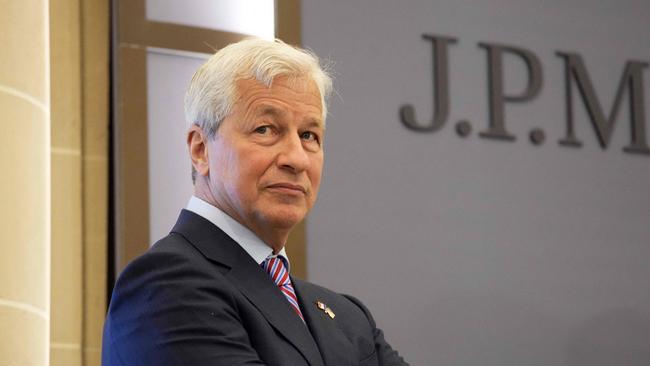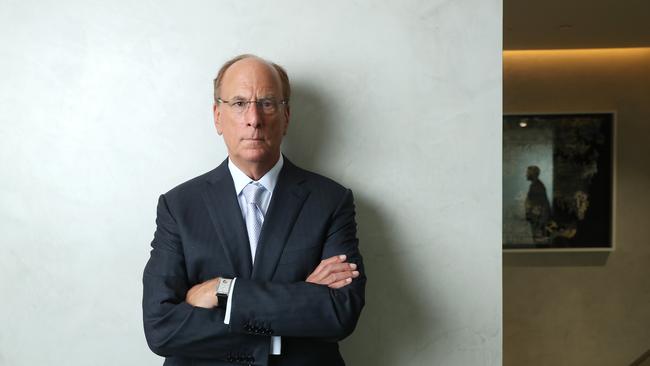World ‘is facing worst economic crisis since 1938’
Wall Street bosses say that the conflict is not only a humanitarian crisis — it could trigger global recession.

A global recession could be triggered by the conflict in the Middle East, the most serious crisis since the Second World War, two Wall Street titans warn this weekend.
Jamie Dimon, chairman of JP Morgan, America’s biggest bank, said the ramifications of Israel’s war on Hamas - coming on top of Russia’s full-scale invasion of Ukraine - were “quite scary and unpredictable”.
He added: “Here in the US we continue to have a strong economy. We still have a lot of fiscal and monetary stimulus in the system. But these geopolitical matters are very serious - arguably the most serious since 1938. What’s happening on the geopolitical front right now is the most important thing for the future of the world - freedom, democracy, food, energy, immigration.”
Larry Fink, chief executive of BlackRock, the world’s biggest asset manager, claimed the Hamas atrocities of October 7 and Israel’s response in attacking Gaza had taken the world “almost to a whole new future”.
He said: “When the Russian invasion occurred in Ukraine, we said that the peace dividend is over. Geopolitical risk is a major component in shaping all our lives. We are having rising fear throughout the world, and less hope. Rising fear creates a withdrawal from consumption or spending more. So fear creates recessions in the long run, and if we continue to have rising fear, the probability of a European recession grows and the probability of a US recession grows.”
The Hamas terrorist group killed 1400 Israelis and took more than 240 hostages. Palestinians say more than 9000 people have been killed in the Israeli bombardment and invasion of Gaza since then.

On Friday, Antony Blinken, the US secretary of state, urged Israel to allow more humanitarian aid into the stricken territory, warning that unless more was done to protect Palestinian civilians there would be “no partners for peace” after the fighting. However, he also emphasised America’s unwavering support for Israel’s attempts to crush Hamas, following meetings with Prime Minister Benjamin Netanyahu and his war cabinet.
Dimon, whose bank has almost 300,000 staff and assets of $US3.7 trillion, said the economic implications were secondary to the humanitarian and geopolitical crisis unfolding.
“We diminish that importance when you say, ‘What’s it going to do to the market?’,” he said. “Markets can deal with stuff. Markets go up and down. Markets fluctuate.”
The Middle East produced 33 per cent of the world’s oil last year. Previous conflicts, such as Saddam Hussein’s invasion of Kuwait in 1990, have resulted in big price shocks. This time, at about dollars 86 a barrel, oil has roughly returned to its pre-October 7 level, while gas prices have risen only slightly.
However, the prospect of increased defence spending by western governments raises the threat of inflation staying higher for longer. Washington is already wrangling over how to allocate military support for Israel and Ukraine, with a divided House of Representatives passing a bill pledging to give Tel Aviv $US14.3bn for hardware including replenishments of its Iron Dome missile defence system last week.
Markets breathed a sigh of relief last week when the US Federal Reserve held interest rates at 5.25 to 5.5 per cent for the second time in a row. The Bank of England also held rates at 5.25 per cent.
Both Mr Dimon and Mr Fink said they thought the Federal Reserve would have to raise rates further to crush inflation, which was 3.7 per cent in the US as of September. “I’m a fundamental believer that we’re going to have higher inflation for longer, and it’s going to require the Federal Reserve to raise rates higher - probably one or two more tightenings - and that will be ultimately the way we get into recession,” Mr Fink said.
THE SUNDAY TIMES



To join the conversation, please log in. Don't have an account? Register
Join the conversation, you are commenting as Logout